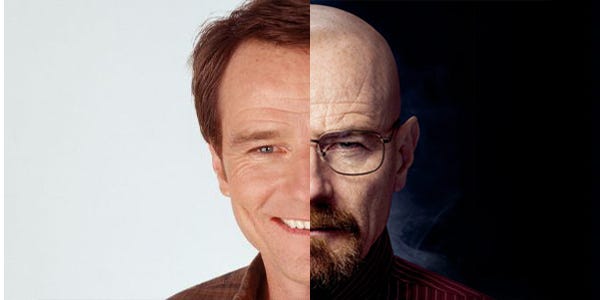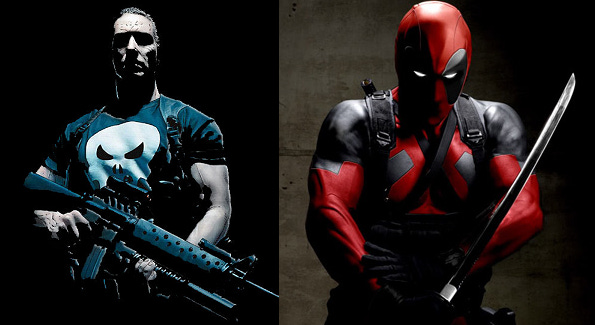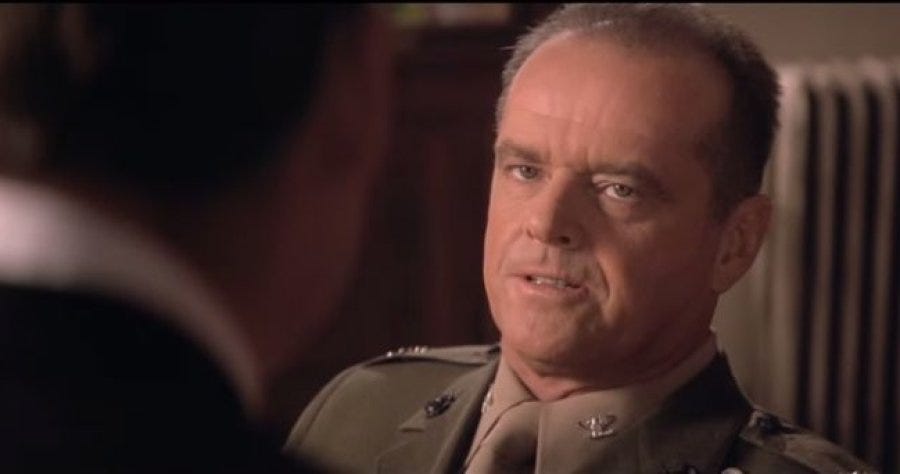The Anti-Hero
Jeremiah Johnson recently had an interesting article about the Anti-Hero at his End Times Prophecy Report blog. By definition: "An anti-hero is a protagonist who typically lacks the traditional traits and qualities of a hero, such as trustworthiness, courage, and honesty. If he were assigned a color, it would be gray. Often, an anti-hero is unorthodox and might flaunt laws or act in ways contrary to society's standards."
I think one of Johnson's main points would be that long ago, we were satisfied with a true hero - for example, Superman always fought for good, he never lied, he didn't work towards his own questionable goals, and the ends didn't justify the means. But in recent decades we are taught to pursue individualism to the extreme - we are taught moral relativism (all ways of doing something are equally valid) and the protagonists in our entertainment reflect these ideas. Our "hero" is often a moral failure we would not want teaching our children - yet we let our children (or at least our own inner child) watch the likes of:

Walter White from “Breaking Bad” - Tyler Durden from “Fight Club” - Peter Griffin from "Family Guy" - Charlie Harper from "Two and a Half Men" - Jack Sparrow from “Pirates of the Caribbean” - Django from "Django Unchained" - Don Draper from “Mad Men” - Michael Scott from “The Office” - Hannah Horvath from “Girls” - and many other characters who for different reasons all have very questionable ways of doing things... yet in the end we are supposed to like and admire them and at least partially accept their desires, goals, and methods.
I started off with a Superman reference - so let's not forget Comic Books - where so many movies start off today...

The Punisher, Deadpool, Wolverine, Magneto - half the cast of X-Men and Avengers movies do at least some heroic deeds but with many fatalities and quite a bit of questionable collateral damage...
Sometimes almost the entire cast of a movie or TV show come across as morally questionable anti-heroes. Remember "LOST" - even the title comments on their characters. How about "Sex and the City" - in this show the women make up "a cast of shallow, entitled characters with no moral compasses." "The Heroine, the New Yorker’s Emily Nussbaum writes—though it’s clear that "heroine" Carrie is more accurately television’s "first female anti-hero."
Is the moral relativism of our entertainment's [anti-]heroism a sign of the Biblical end times? Johnson would seem to say yes, pointing out verses like:
“Woe unto them that call evil good, and good evil; that put darkness for light, and light for darkness; that put bitter for sweet, and sweet for bitter!” –Isaiah 5:20
In my own books on end times prophecy I focus on more specific signs - especially on timing. But the acceptance of the anti-hero definitely affects us. I found this commentary very insightful:
"Toward the finale of the 2016 election, Mike Huckabee took to Fox News to give a defense of Donald Trump that I’ve been mulling over in my head ever since.
I see Trump as Capt Quint (Robert Shaw) on the boat, Orca, in the movie “Jaws.” He’s salty, drunk and says incorrect things. He spits in your face. BUT… He’s gonna save your rear. You may not like what he says but, in the end, you and your family survive.
“Vote for the fishing boat captain,” Huckabee said. “Not the shark.”
...Huckabee’s defense gave a great insight into why people were lining up behind Donald Trump. They saw him as a vulgar presence, but he was their vulgar presence against the greater dangers...."

This speech from "A Few Good Men" seems relevant:
"You can’t handle the truth! Son we live in a world that has walls, and those walls have to be guarded by men with guns....my existence while grotesque, and incomprehensible, to you, saves lives. You don’t want the truth because deep down in places you don’t talk about at parties, you want me on that well, you need me on that wall! We use words like honor, code, loyalty. We use these words as the backbone of a life spent defending something, you use them as a punchline. I have neither the time, nor the inclination to explain myself, to a man who rises and sleeps, under the blanket of the very freedom that I provide, and than questions the manner in which I provide them!"
We cannot accept the hero's help and then question his methods, right? Because then we must question if he is actually a hero, and if we should even be admiring him at all - or the reflection in ourselves...
Whether this rising trend in the popularity of antiheroes is a clear sign of moral degradation or impending doom, socially or prophetically, may be debatable. But it is a reflection of society's hyper-individualism, moral relativism, and the trend away from conformity and acceptance of traditional values and norms.
When generations of people fail to share or at least strive towards these common values - political polarization, racism, and other divisions and signs of societal breakdown emerge. As you read Johnson's article below, ask yourself the question: Is our entertainment helping to destroy us?
*****************
"One of the most popular characters in modern movies, novels and games is the hero–or rather, the antihero.
What is an antihero?
An antihero or antiheroine is a main character in a story who lacks conventional heroic qualities and attributes such as idealism, courage and morality. Although antiheroes may sometimes perform actions that are morally correct, it is not always for the right reasons, often acting primarily out of self-interest or in ways that defy conventional ethical codes.
It seems that few main characters in the modern world are heroes.
It appears that we now live in the Age of the Antihero.
One can easily tell the antihero.
He is the one “marching to the beat of his own drum.”
He is the one who is usually fighting a Greater Evil, so the evil behaviors he commits look tame by comparison; i.e., they can be excused by the antihero’s allies–and the audience.
He is the one who has the audience cheering as his sin piles up rapid fire.
The antihero often lies, steals, murders: in short, all the same behaviors the VILLAIN used to be relied upon to commit. BUT because the antihero is fighting for a “greater good,” the audience applauds his sin.
The antihero mainstreams perversity and sin, making it appear to be normal and good–even DESIRED because the antihero fights for the “good guys;” i.e.; the side the with which the audience has identified (Causing the audience to identify with one side or another is surely one of the easier tricks Big Entertainment can perform.)
“Woe unto them that call evil good, and good evil; that put darkness for light, and light for darkness; that put bitter for sweet, and sweet for bitter!” –Isaiah 5:20
When those who labor for the movie studios as shills in the Shill Networks tout such entertainment, they insist the bloodier and more brutal, the better. Casual sex and even more casual brutality are “fan favorites” to hear the shills tell it.
The shills insist that this is what the audience craves. In fact, they often use the phrase “It’s what the fans demand!”
if interested read even more of Jeremiah Johnson's article HERE

